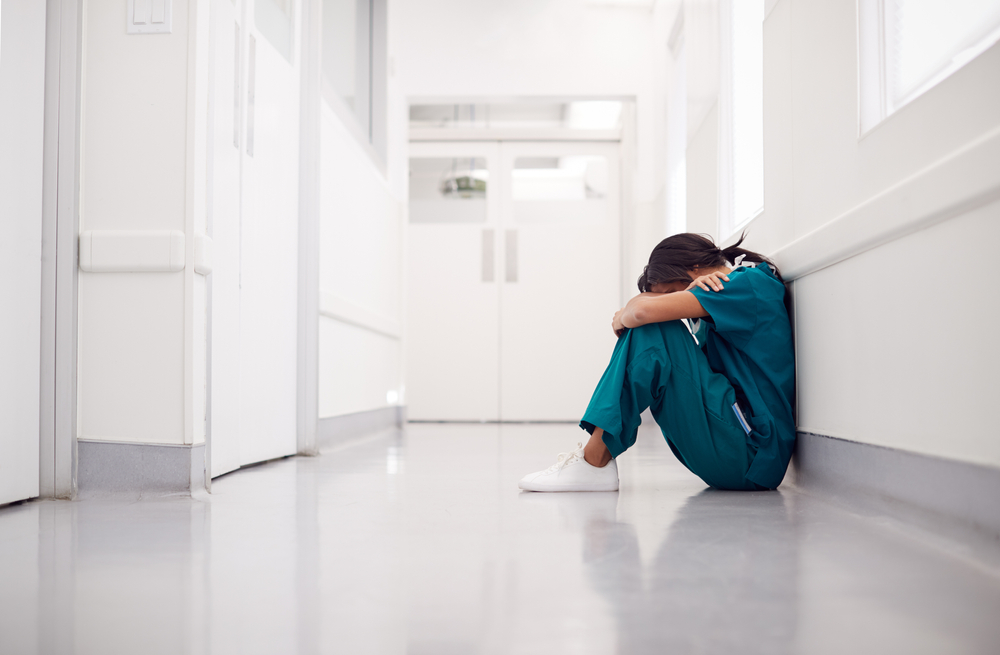It’s hard to believe that our collective national journey with COVID-19 began only about 9 months ago. In March, I got an informal email from a close friend who is an intensive care and hyperbaric medicine physician. It was so moving that I thought, “Everyone needs to follow this journey, it would help all of us understand.” And with her permission, I began posting “COVID Diaries” from this anonymous physician. Sometimes she was so exhausted that her messages were not even written with complete sentences. Sometimes they were so eloquent I cried over them and posted them exactly as I received them. If you missed this powerful series, you can find all the posts here.
We all breathed a collective sigh of relief when she told us things were getting better at her hospital. She rotated off the intensive care unit and we hoped for her sake that the worst was over. But, a month ago, she let me know she was back in the ICU and cases were rising. I asked her to send me some more posts for her “COVID diaries,” but she was so exhausted physically and emotionally that she wasn’t able to write about it – until now. I think when you read this installment, you will understand why.
–Caroline
Weary.
I suspect we are all weary. COVID has affected everyone in different ways. Although being a frontline worker in the COVID battle early on was not without risk, it was also rewarding and almost therapeutic. The first three months of the pandemic saw us running on pure adrenaline. But as the weeks wore on, the adrenaline petered out and we were left with battle fatigue. As the numbers of COVID patients in the ICU dwindled, we hoped that we were past the worst. First we noticed we could go days without new COVID admission. Then we went a month without a really sick case. Eventually there were no more COVID patients in the ICU. It was encouraging but were tired. Even when we weren’t spending all day caring for COVID patients, our daily lives were affected just like everyone else’s.
We all needed a break but no one could travel or go on vacation, and the volume of long-neglected non-COVID patients began surging back, taxing outpatient services. The volume of surgical procedures was higher than expected as patients who had postponed needed operations finally got their procedures. When COVID loosened its grip on us, we found we needed to work exhausted staff even harder to handle the aftermath. There has been no respite for the workers. We slog through the long work week focused on the weekends. Sleep is elusive but one advantage to sleep deprivation is that you get to a level of fatigue that is so profound, it can’t get worse. It is no longer possible to feel more tired than you are.
I found that when I went up to the floors to see patient consults and made eye contact with a fellow COVID warrior, both of would have to fight back tears. An ER nurse supervisor with prior military experience recognized that many of us had post-traumatic stress disorder (PTSD). As a way to process what we went through, some of us made those videos that your iPhone will help you create, using clips of the movies and photos in your smart phone. I created a personal movie one that helped me reflect on what we went through. I shared it with my fellow COVID warriors and we all got a little choked up. Then one of our ICU nurses who has a talent for media created a thirty minute video with interviews of the warriors relating their frontline experiences. Set to epic music, most of us were emotionally shattered after watching it.
Then a month ago, the COVID cases began to trickle in again. The following week the number of sick COVID cases requiring ICU level care began to increase. It was like going back to war. Again we had to start donning and doffing personal protective equipment (PPE), except the new and reusable PPE has reached a new level of uncomfortable (which didn’t seem possible). Everyone has the same thought, “I can’t do this again…”.
Our healthcare system is trying to address the emotional status of the frontline workers, but you know what has helped me the most from an emotional standpoint? My therapy is putting a patient with COVID pneumonia who is approaching respiratory failure into the hyperbaric chamber. When they get hyperbaric oxygen therapy (HBOT), I see the fear leave their eyes and the effort of breathing decreases. Then mercifully, the patient sleeps. They are exhausted from the work of breathing to survive every minute of the day. Only in the hyperbaric chamber can they sleep because at last their tissues have enough oxygen.
Although COVID cases are increasing again, the patient acuity is less and I don’t think we’ll see the nearly overwhelming volume we saw before. At least, I hope not. Our nation, our economy, our world and our little hospital has been up-ended by the virus and the politicization of what ought to be a non-partisan fight. We are all just so weary.

Dr. Fife is a world renowned wound care physician dedicated to improving patient outcomes through quality driven care. Please visit my blog at CarolineFifeMD.com and my Youtube channel at https://www.youtube.com/c/carolinefifemd/videos
The opinions, comments, and content expressed or implied in my statements are solely my own and do not necessarily reflect the position or views of Intellicure or any of the boards on which I serve.




What strikes me about Denmark’s decision to euthanize 17 Million mink is that it seems to verify the hypothesis that Covid came about because of gain of function research with ferrets.